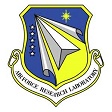AFRL unveils new BAA, Foundations of Trusted Computational Information Systems
 On April 20, the U.S. Air Force Research Laboratory released a new broad agency announcement (BAA) entitled, Foundations of Trusted Computational Information Systems (BAA NUMBER: BAA FA8750-17-S-7007). For funding consideration in FY 17, white papers should be submitted by May 31.
On April 20, the U.S. Air Force Research Laboratory released a new broad agency announcement (BAA) entitled, Foundations of Trusted Computational Information Systems (BAA NUMBER: BAA FA8750-17-S-7007). For funding consideration in FY 17, white papers should be submitted by May 31.
The Air Force Research Laboratory, Information Directorate is seeking innovative technologies/techniques that establish trusted foundations for hardware and software that enable secure, resilient, affordable Command, Control, Communications, Computer, Intelligence and Cyber (C4+1I) information processing systems.
The Air Force and Department of Defense (DoD) are dependent upon information technologies for almost everything they do, yet more needs to be done to secure the processing foundations upon which information technology infrastructure depends. Additionally, the sheer volume of data types being continuously being collected is now so voluminous that only a small subset of the data collected can effectively be refined into information, knowledge and actionable intelligence for decision makers.
The Air Force Research Laboratory is soliciting white papers under this Broad Agency Announcement (BAA) for research, development, integration, test and evaluation of innovative technologies/techniques that establish trusted foundations for hardware and software that enable secure, resilient, affordable Command, Control, Communications, Computer, Intelligence and Cyber (C4+1I) information processing systems. Additional innovative technologies are sought to simultaneously increase the computational sophistication and decision aid capacities of these same systems.
Of particular interest are technologies that support hardware and software foundations for high assurance, trusted/secure architectures, increased computational sophistication of general purpose and specialized processing, increased complex system functionality with improved resilience, embedded processing and quantum information processing. Also of interest are technologies that can reduce warfighter decision latencies/response time, decrease system costs and system development times, automate labor-intensive/error-prone and costly aspects of system software development, and improve reliability, longevity, upgradability, and usability of emerging and legacy military information systems.
Operation in a contested cyberspace domain requires that our systems must be resilient to unforeseen cyber-attacks. System characteristics dependent on geo-distribution, autonomy, and cooperation rely on trust within the system. Many mission critical systems and components currently lack the ability to adapt and be resilient to unforeseen failure and cyber-attacks. Methodologies and techniques to understand, maintain or reestablish trust in the system and its components to ensure mission success during execution and fight-through are non-existent. Resilient systems must possess self-healing capabilities that can dynamically effect change in the system to fight through unforeseen cyber-attacks (while maintaining mission essential functions (MEF)) as well as provide proof of continued or re-established trust in the system, as the dynamic change will have eroded mission/system trust based on the time-consuming, human-intensive and expensive Verification and Validation (V&V) established offline prior to mission deployment. To overcome these challenges, computing architectures require advances in resiliency technologies that enable fight through of unforeseen faults and cyber-attacks, while simultaneously assessing and/or reestablishing trust in near real-time to ensure mission success.
Full information is available here.
Source: FedBizOpps








